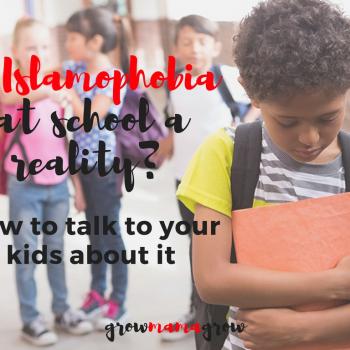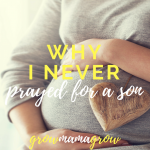 My husband and I didn’t know that attending the charity event benefitting orphans in the community and abroad would dramatically affect the way we viewed building up our family. We generally jump at the opportunity to sponsor orphans or donate to institutions that provide care and support for them. In part this is due to the strong encouragement in Islam to care for orphans, as the prophet Muhammad stressed it so much that even his poorest companions would be among the first to come to the aid of orphans. As the speaker at the charity event noted, Allah tells the prophet Muhammad in the Quran:
My husband and I didn’t know that attending the charity event benefitting orphans in the community and abroad would dramatically affect the way we viewed building up our family. We generally jump at the opportunity to sponsor orphans or donate to institutions that provide care and support for them. In part this is due to the strong encouragement in Islam to care for orphans, as the prophet Muhammad stressed it so much that even his poorest companions would be among the first to come to the aid of orphans. As the speaker at the charity event noted, Allah tells the prophet Muhammad in the Quran:
“Did he not find you an orphan and then give you shelter (and care)? Therefore treat not the orphan with harshness.” (Quran, 93:6,9)
Although I am not an orphan like the prophet Muhammad was, I am living in the favor of Allah. This brings me to the second motive for caring for other children- I must be grateful that He has not chosen to make either myself or my child into orphans. He chose to let my daughter experience the joy of her parents’ loving touch and gentle embrace. That certainly is a favor from Allah that requires appreciation.
One way of showing that appreciation is by caring for children who don’t have the blessings that my child does.
The prophet Muhammad mentioned that whoever cares for an orphan until they come of age is granted a spot in heaven next to the Prophet himself. Also, the most loved of homes to Allah is the one with an orphan who is honored, according to the Prophet. This means not only providing food, shelter, education, and any other type of sustenance to the orphan, but doing so in a way equal to your own children.
Besides for hearing these inspirational stories, I also was surprised to learn that I did not even know the true definition of an orphan in Islam all along. An orphan is one who does not have a father, either due to death, imprisonment, or any other factor that would cause the father to be separated from the child (temporarily or permanently). Furthermore, a person in such a situation is considered an orphan until they can support themselves independently of anyone else (which some scholars say means the person can be past the age of puberty and still be an orphan).
At the end of the night, I began seriously considering adoption (which naively enough I had never before linked to caring for orphans since I did not know the true definition of orphans in Islam as stated above). Surprisingly, it turned out my husband was on the same page despite having never discussed our feelings about it in the past. I think that we overcame a mental hurdle that night, since adoption was never something that either of us was exposed to. In some communities there is even a slight aversion to adoption since some people are ultraconservative about gender relations and in Islam your adopted child is not your true child (they keep their last name, and at the age of puberty the same rules about gender relations apply as for non-relatives). But, then again I know there can be an aversion against organ donation in some communities. These things shouldn’t affect our personal decisions in principle; let’s see how things go in practice. Stay tuned for our next post in this mini-series, where we go into depth about practical issues and roadblocks toward adoptions.
Dalal Kanan
Dalal is currently a chemistry graduate student who above all loves being mom to a precious 2 yr old. She would like to acknowledge Drs. Younes and El-Fayoumi for providing the Islamic proofs and references mentioned in this post.
—
Editor’s Note: Do you have any adopted children? If so, we would love to hear from you about your experience! If you don’t mind answering a few questions, please contact us at [email protected].











